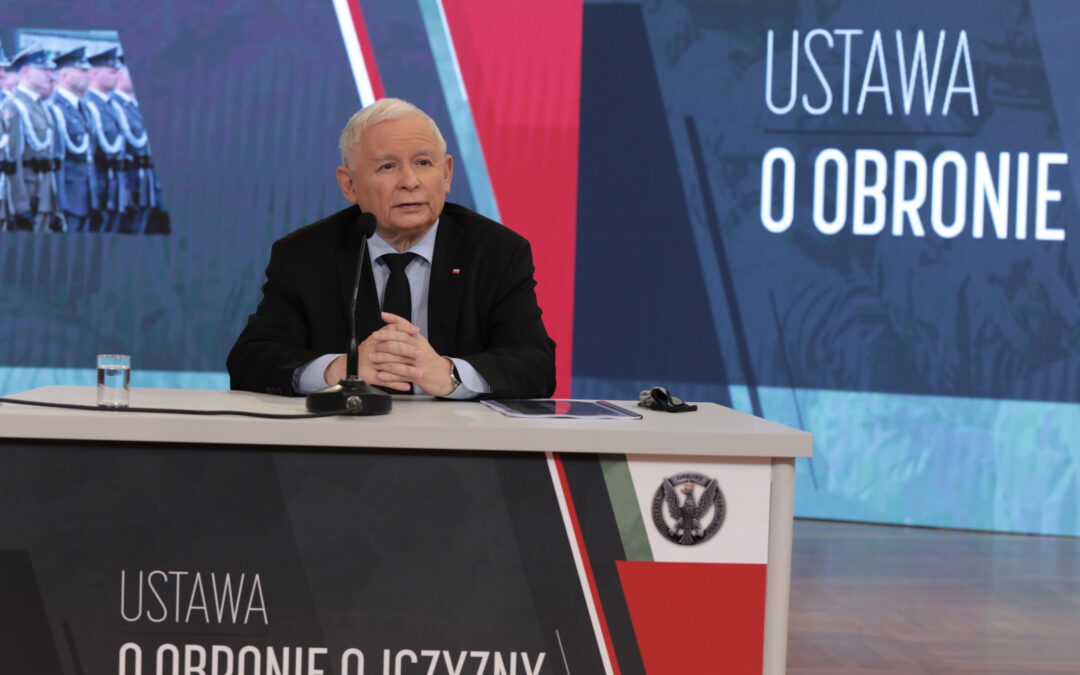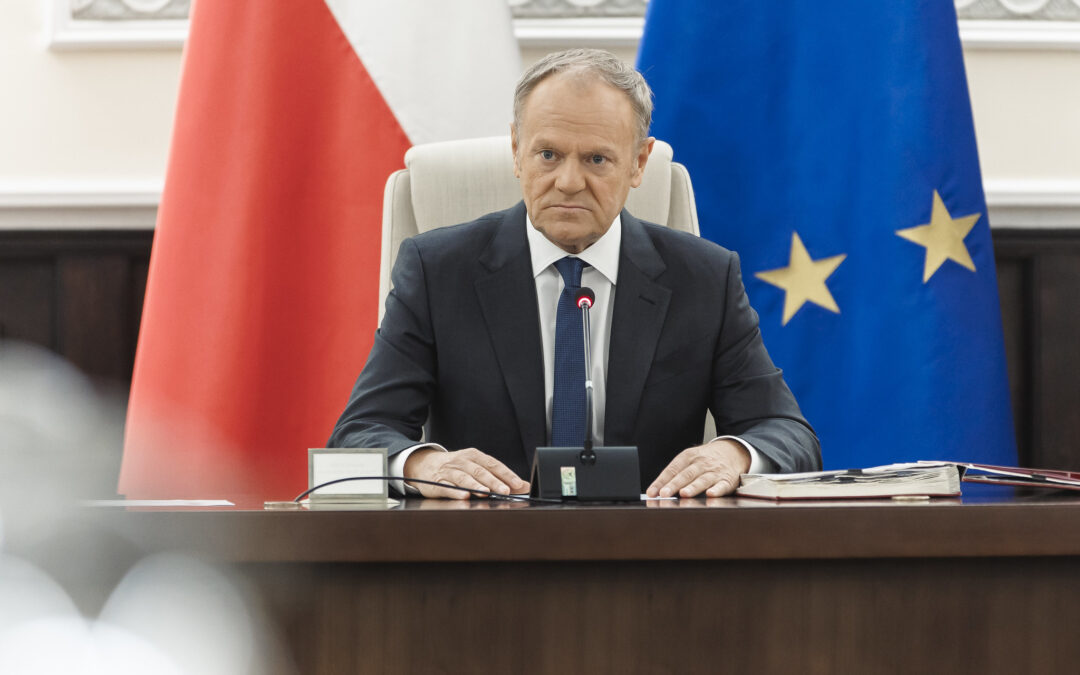Poland’s government has outlined a new “homeland defence act” that will boost spending, expand the size of the armed forces, and introduce a system of cash incentives for long military service.
“If you want peace, prepare for war,” said Jarosław Kaczyński, deputy prime minister with responsibility for national security, unveiling the plans. Kaczyński – who, as the chairman of the ruling party, is Poland’s de facto leader – pointed to what he said was the growing threat of Russia, including new forms of hybrid warfare.
At a press conference this afternoon, Kaczyński and the defence minister, Mariusz Błaszczak, unveiled the main points of a plan to “radically strengthen” Poland’s armed forces. The new legislation, spanning 720 articles, is meant to replace the existing 14 defence acts with a single comprehensive package.
Kaczyński argued that a country whose borders are also the eastern frontiers of NATO and the EU must have “a serious and independent deterrent force”. While the collective defence mechanism of NATO was “very powerful”, he argued that the organisation was only able to rally its forces with a lag.
Kaczyński also pointed to growing threats to Poland’s security. “The situation has worsened: we have a hybrid war, provocations, the Russian army and Russia’s imperial ambitions,” he said.
He said that Moscow’s military exercises were aimed at ensuring that units of its army were “ready for offensive actions” and that Moscow had been “taking steps” towards the rebuilding of its pre-1991 empire.
Poland’s “geopolitical situation” therefore makes it necessary to bolster defences. “It is our sacred duty that this be accomplished,” he said, quoted by the Polish Press Agency (PAP).
The proposed defence act, therefore, includes plans for a larger military budget. The army’s headcount is also to increase to a minimum level of 250,000 professional soldiers and 50,000 soldiers in the Territorial Defence Forces.
Minister @mblaszczak o założeniach nowej ustawy o obronie Ojczyzny: zwiększenie budżetu na obronność i zwiększenie liczebności #WojskoPolskie to tylko niektóre cele nowej ustawy. #ObronaOjczyzny pic.twitter.com/yRubzGaWOr
— Ministerstwo Obrony Narodowej 🇵🇱 (@MON_GOV_PL) October 26, 2021
The plan will introduce new types of military service. Błaszczak also announced the creation of “cyberspace defence forces” to “respond to the dangers of the 21st century”.
The government also wants to encourage more people to enter the armed forces and to remain there once enlisted. “We want experienced, professional soldiers, if their health allows them, to continue their service,” said Błaszczak, quoted by Polsat News.
To this end, there will be cash incentives of 1,500 zloty (€325) for soldiers who stay in service for 25 years and 2,500 zloty (€540) for those who stay 28 years. A parallel scheme was already offered to other state services, including the police, border guards, firefighters and prison guards last year.
The new act will also reinstate the reserves system. Despite earlier speculation, Błaszczak underlined that the government would not be reinstating compulsory military service.
The government is also seeking to improve training for soldiers, and to promote army service and studies, through scholarships for specialist degrees as well as paid training.
The Polish government has recently embarked upon a wave of defence spending, including buying 250 of the latest Abrams tanks from the US, signing a deal for the construction of an air defence system, and procuring 24 Turkish drones.
Main image credit: Slawomir Kaminski / Agencja Wyborcza.pl

Maria Wilczek is deputy editor of Notes from Poland. She is a regular writer for The Times, The Economist and Al Jazeera English, and has also featured in Foreign Policy, Politico Europe, The Spectator and Gazeta Wyborcza.




















